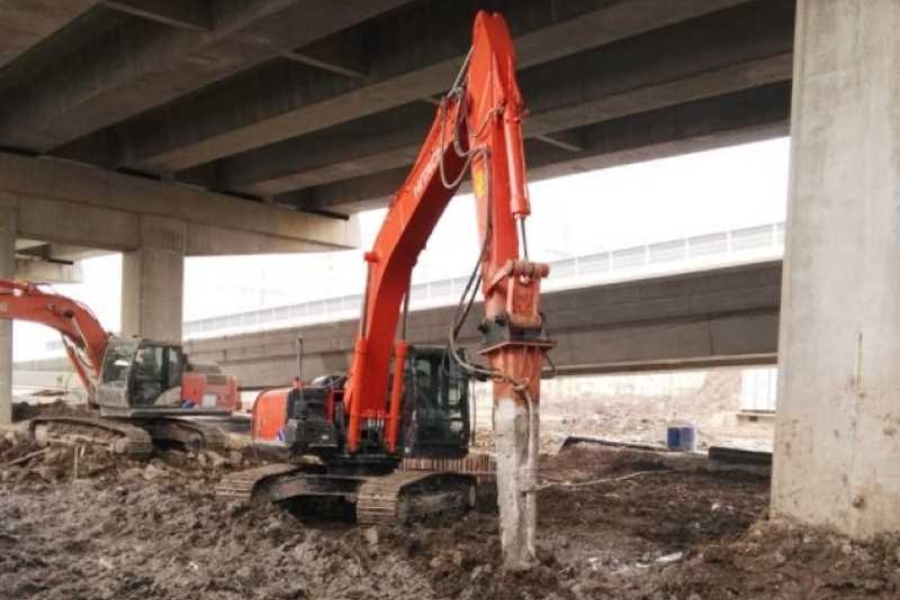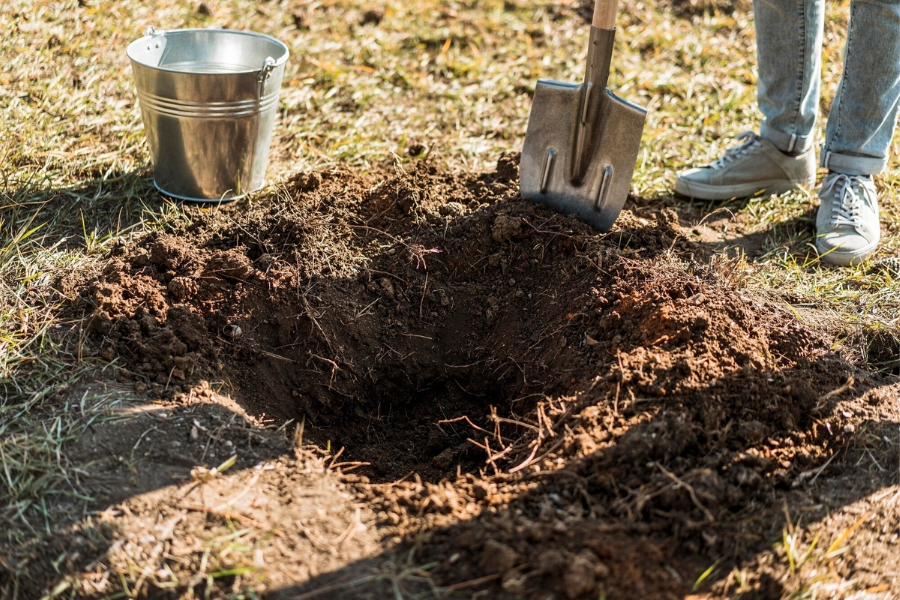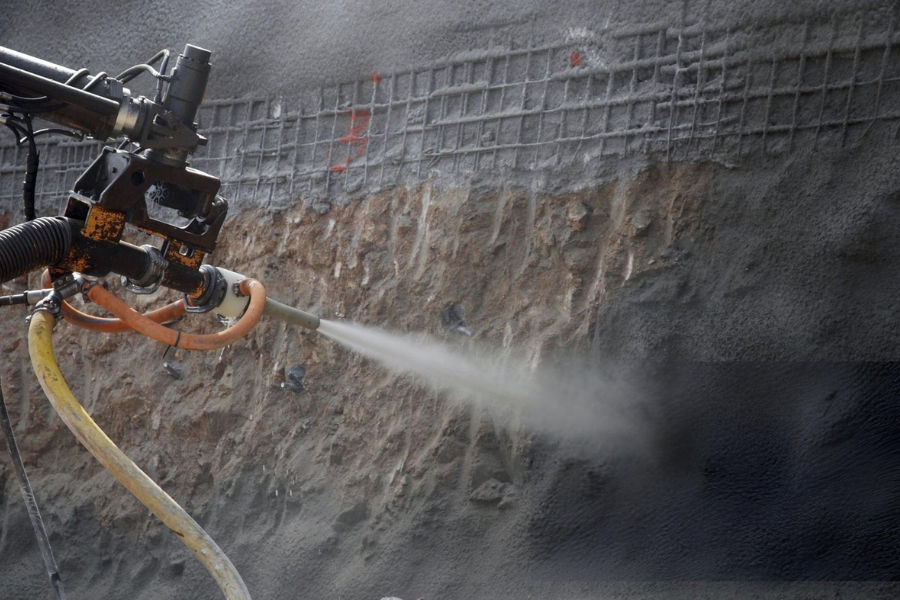Soil Stabilization in Fort Lauderdale, FL
- Family-Owned
- 20+ Years Experience
- High Quality
- Honest & Affordable

WHAT YOUR NEIGHBORS ARE SAYING ABOUT US
GET IN TOUCH
Soil Stabilization in Fort Lauderdale, FL
Soil plays a critical role in the stability of a building’s foundation. In areas like Fort Lauderdale, FL, where soil conditions can be unpredictable due to moisture, erosion, and natural settling, the integrity of the soil beneath your property is vital to its structural soundness. Soil Stabilization is a service that strengthens and reinforces the soil under foundations to prevent settling, shifting, or cracking, which can compromise the entire structure.
At Fort Lauderdale Foundation Repair, we specialize in Soil Stabilization techniques that help homeowners and businesses in Fort Lauderdale, FL, ensure the long-term stability of their foundations. Whether you are dealing with shifting soils, sinkholes, or other soil-related foundation issues, our team is here to help you stabilize your property and prevent further damage.
Our Services
- Concrete Slab Foundation Repair
- Pier and Beam or Block and Base Foundation Repair
- House Leveling
- Retaining Wall Repair
- Seawall Repair
- Sinkhole Remediation
- Polyurethane Foam Injection
- Commercial Foundation Repair
- Soil Stabilization
- Pool Stabilization
- Void Filling
- Steel Push Pier Installation
- Slab Pier Installation
- Injection Pier Installation
- Helical Pier Installation
- Pre-Construction Pier Installation

What is Soil Stabilization?
Soil Stabilization is a process used to improve the strength and stability of the soil beneath a foundation. This is done by treating the soil with additives or materials that enhance its load-bearing capacity and reduce its susceptibility to movement caused by moisture, erosion, or soil type. By stabilizing the soil, we can ensure that the foundation above it remains secure and resistant to future shifting or settling.
There are several methods used in Soil Stabilization, including chemical stabilization, mechanical compaction, and grouting techniques. The method chosen depends on the type of soil, the extent of the foundation issues, and the specific needs of the property.

Why Soil Stabilization is Important
Soil conditions in Fort Lauderdale, FL, can vary greatly, with some areas prone to issues such as expansive soils, high moisture content, and erosion. Soil Stabilization is essential for several reasons:
- Prevents foundation settling: Unstable soil can lead to foundation settling, causing cracks in walls, uneven floors, and structural issues. Stabilizing the soil prevents this from happening.
- Reduces soil erosion: Erosion can weaken the soil beneath your foundation, leading to instability. Soil Stabilization helps combat erosion, ensuring the soil remains strong and supportive.
- Increases load-bearing capacity: If the soil beneath your foundation cannot support the weight of the structure, stabilization techniques can enhance its load-bearing capacity.
- Improves drainage: Poor soil drainage can contribute to foundation problems. Soil Stabilization can improve drainage, preventing water from accumulating and damaging the foundation.

Signs You Need Soil Stabilization
It’s crucial to be aware of the signs that indicate your property may require Soil Stabilization. If you notice any of the following issues, it’s time to contact a foundation repair expert:
- Cracks in walls and foundations: Visible cracks, especially those that expand over time, are a common sign of shifting soil beneath the foundation.
- Uneven or sinking floors: If your floors are no longer level or are visibly sinking in certain areas, this could be a sign of soil instability.
- Doors and windows not closing properly: When doors or windows stick or don’t close properly, it can be a sign that the foundation is shifting due to unstable soil.
- Soil erosion around the foundation: If you notice soil eroding around the base of your home or building, this could be weakening the foundation, making Soil Stabilization necessary.
- Water pooling near the foundation: Poor drainage and pooling water near the foundation can contribute to soil erosion and instability, making stabilization important.

Our Soil Stabilization Process
At Fort Lauderdale Foundation Repair, we use a comprehensive approach to ensure that Soil Stabilization is effective and long-lasting. Here’s an overview of our process:
- Initial Inspection and Soil Analysis
We begin with a thorough inspection of the property to assess the condition of the foundation and the soil beneath it. This includes a soil analysis to determine the type of soil, its moisture content, and any existing weaknesses or erosion issues. - Customized Soil Stabilization Plan
Based on our findings, we develop a customized Soil Stabilization plan tailored to the specific needs of your property. This may involve chemical stabilization, compaction, or other methods to strengthen the soil and prevent future movement. - Chemical Stabilization
In cases where the soil requires chemical treatment, we use lime, cement, or other stabilizing agents to bind the soil particles together and improve its strength. This technique is particularly effective for expansive soils that are prone to swelling or shrinking due to moisture changes. - Mechanical Compaction
For areas with loose or eroding soil, we may use mechanical compaction to compress the soil and increase its load-bearing capacity. This process involves compacting the soil using specialized equipment to ensure it is dense and stable. - Grouting Techniques
If the soil has developed voids or sinkholes beneath the foundation, we use grouting techniques to fill the gaps and stabilize the surrounding soil. Grouting involves injecting a mixture of cement or polyurethane foam into the voids to provide support and prevent further movement. - Post-Stabilization Inspection
After the Soil Stabilization process is complete, we conduct a final inspection to ensure that the soil is stable and that the foundation is properly supported. We also monitor the area for any signs of future instability.
Looking For Soil Stabilization Near Me
If you’re searching for Soil Stabilization near me in Fort Lauderdale, FL, look no further than Fort Lauderdale Foundation Repair. Our team is ready to provide professional soil stabilization services to protect your foundation and restore your property’s stability. Contact us today at 954-787-2167 for a free estimate and to schedule an inspection of your property.
FREQUENTLY ASKED QUESTIONS
How long does the soil stabilization process take?
The duration of the process depends on the size of the property and the extent of the soil issues. Most projects can be completed within a few days to a week.
Can soil stabilization prevent future foundation issues?
Yes, stabilizing the soil helps prevent future foundation problems by creating a stable, solid base for your building.
Is soil stabilization necessary for all properties?
Not all properties require soil stabilization, but it’s essential for those built on unstable or loose soil. It’s also beneficial for new construction projects to ensure a solid foundation.
Can soil stabilization be done on an existing building?
Yes, soil stabilization can be performed on existing buildings that are experiencing foundation problems due to unstable soil.
What are the signs that I need soil stabilization?
Common signs include foundation cracks, uneven floors, pooling water around the foundation, and sinking or settling sections of the building.


